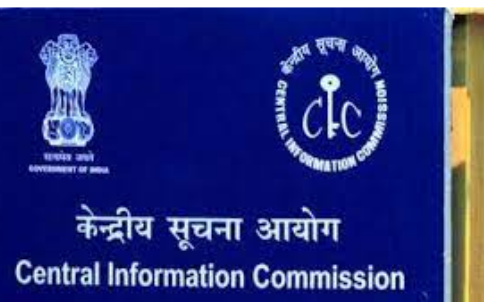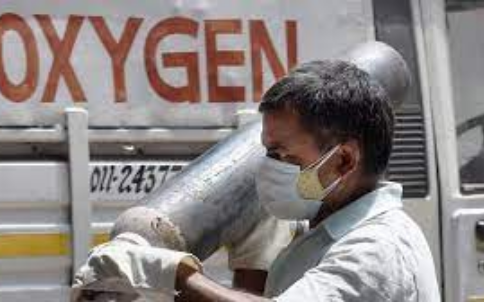It is not a mere reflection of public authorities’ rejection of information of high public importance, but also refusing to deliver information of life and liberty within 48 hours mandated by RTI Act. The CIC decisions are buttressing this anti RTI attitude and rigidifying the CPIOs as if it was not statutorily permitted. Latest decision, though CIC ordered disclosure, it rendered a death blow to ‘life and liberty’ disclosure norm.
Also read: Sedition: Patel would have jailed Socialists!
In Saurav Das vs Department for Promotion of Industry and Internal Trade (DPIIT), the important public authority at Centre proved not willing to share very important public information by unjustly denying the information relating to sufficient supply of oxygen. A significant RTI request was filed by activist and freelance journalist Saurav Das in April 2021. One year ago, a 9-member committee was set up under the Chairmanship of DPIIT, Secretary Mr. Guruprasad Mohapatra to ensure adequate availability of medical oxygen in the wake of Covid-19 pandemic. Saurav Das asked for: 1. The list of exact dates on which the said Committee has met till date. 2. The certified copies of detailed agenda of all the meetings. 3. The certified copies of presentations made before the group and detailed information about each of them. 4. The copies of the Minutes of each meeting held along with all notes, annexures, etc. put before the Committee for consideration. He wanted this information to be given within 48 hours because it concerned with lives and liberty of people at large.
Also read: Punish Police for Using Dead Section 66A for Contempt
The CPIO did not provide the information invoking the provisions u/s 8(1)(a) and (d) of the RTI Act without application of mind. Section 8(1)(a) exempts the information which is prejudicial to the sovereignty and integrity of India, the security, strategic, scientific or economic interests of the State, relation with foreign State or lead to incitement of an offence. Section 8(1)(d) says information including commercial confidence, trade secrets or intellectual property, the disclosure of which would harm the competitive position of a third party need not be provided.

Its first appellate authority also failed the law. First appeal does not serve any purpose in this nation, because the so-called senior officer occupying the statutory seat as First Appellate Authority (FAA) to hear appeals from CPIOs rejection, simply sits there to endorse whatever is stated by CPIO. His seniority, experience and wisdom if any, does not result in serious review at all in most of the cases. This is the attitude of ninety percent First Appellate Authorities. To say the least, it is shameful. In this case also FAA joined CPIO in adamant rejection without applying the mind in rejecting it, citing national security reasons. It is ridiculous. RTI Act did not provide for accountability of FAA. But it made CPIOs accountable, which the CIC will ignore as a rule and seldom initiate even in cases of blatant refusal like this. The CPIOs will get emboldened to reject repeatedly with all impunity.
Also read: Supreme Court to limit abuse of Sedition and 153A IPC
The Central Public Information Officer (CPIO), who does not give reasons in rejecting order, and FAA does not care, gets ready in CIC to argue that the Empowered Group was set up in a time of crisis to cut across the several arms of the government and ensure that bureaucratic hassles did not impede decision-making…. These proposals and deliberations contain highly sensitive information”.
Also read: CBI is saved from Directors of one week to few months, thanks to CJI
Applicant was constrained to file second appeal contending: (a) This RTI application relates to life and liberty of a person and the disclosure of information would have helped save several lives and fixing accountability during the time it was asked for. (b) a proper remedial action by way of litigation and public interaction with the Government could have been done if the information was revealed at that time. (c) The action/non-action by this very important Committee of the Government could result in mass deaths and mass chaos, both of which the country was a witness to during the second wave of COVID. (d) This request should not be not treated as an adverse case. It is only in larger public interest and transparency that this case has been filed so that such situations like that seen during the second wave could be avoided in future. As the second wave of the pandemic was the deadliest, several people died and the Government of India could not manage the situation as expected. This mismanagement led to intervention of several High Courts across the country and the Supreme Court to fix the broken system and alleviate the suffering of the masses.
The CPIO pleaded with CIC that the second appeal should be “outrightly dismissed” because it was filed under life and liberty clause and filed first appeal within 12 days from the filing of this RTI, instead of giving 30 days-time and did not wait for 45 days to file second appeal.
After-thought & farfetched
The CIC rejected the defence, saying that the citing of exemption on the grounds of Cabinet discussions “appears to be an afterthought which seems far-fetched also”. The exemption cited related to national security was “also not justified”, it said. With regard to commercial confidence and intellectual property rights, the CIC said a blanket denial of all requested information was unjustified.
The Commission also rejected the contention of the appellant that the information sought was concerning life and liberty. If there is any delay, the CIC ‘assumed’ it was because of CPIO’s COVID 19 indisposition. Agreeing that rejection on the grounds invoked was not justified, the CIC left it at that only. The Commission did not find it deserving a show cause notice, at least. In spite of sanctions, approvals and availability of funds the establishment of contemplated oxygen plants were not initiated, and that it stopped at tenders’ level for more than 8 months. The appellant says early disclosure of information should have stirred the authorities to act quick to augment supply to save lives. The Commission was not inclined to agree with this.
The unquestioned and unaccountable CPIOs are using the listed grounds of exemption such as national security, strategic interests, commercial confidences, intellectual property and Cabinet papers to deny any information, heartless and mindless. Almost every exception clause was mentioned by the CPIO in this case, in a cut and paste way.Their arrogance and impunity granted by inaction of officers will not allow them to give any justification for invoking exemption clauses. How could the disclosure of oxygenisa threat to national security? What kind of intellectual property it is that deserves to be kept as secret? What is commercial confidence? Which cabinet paper is being sought? The CIC also agreed with this. Our India is asking WTO to exempt vaccines for Covid from IPR bonds, and IPR wing of DPIIT thinks oxygen supply related information as IPR protected! Its atrocious and unpardonable, but excused and pardoned by CIC.
Also read: Which law authorizes you to beat people on Road, Mr. DGP?
It is undisputed that several patients died not because of corona infection but mainly due to lack of ‘oxygen’. The Government is afraid of losing image by disclosing specific data. The ‘national security’ is not threatened but their reputation is. The fear of adverse publicity through exposure of the truth about inefficiency and recklessness of the administration, is a major obstacle for implementation of RTI law.
The Central Information Commission (CIC) was very critical of the public authority, and slammed the public authority’s blanket denial of information related to a committee overseeing medical oxygen supplies during the pandemic. The CIC pointed that its rationale was “far-fetched” and “unjustified”. The Information Commissioner Vanaja Sarna directed the government to provide the Right to Information (RTI) requested within 10 days. But not chosen to start penal proceedings against the CPIO who as per Section 20 should be punished for unjustifiable denial. It was also not explained why the CIC ignored it.
Also read: Brave Father and a Humane Daughter
The institution of Information Commission has duty to bring in both answerability and accountability. Rarely the Commission is directing the authorities to give information and very rarely penal proceedings are started, most of which end up without any penalty. The state machinery is free from any responsibility or liability for negligence in supplying the oxygen. The CPIOs and public authorities are allowed immunity for harassing the citizens without giving information unless they fight up to Commission or beyond. Most of the public authorities exude confidence that the Commission will not force them to disclose and hence deny the information. Unless applicant is an activist or has time, will not approach CIC and wait at least for a year.
Also read: Deepti’s policy won appreciation of 2 Union ministers
(to be continued)




